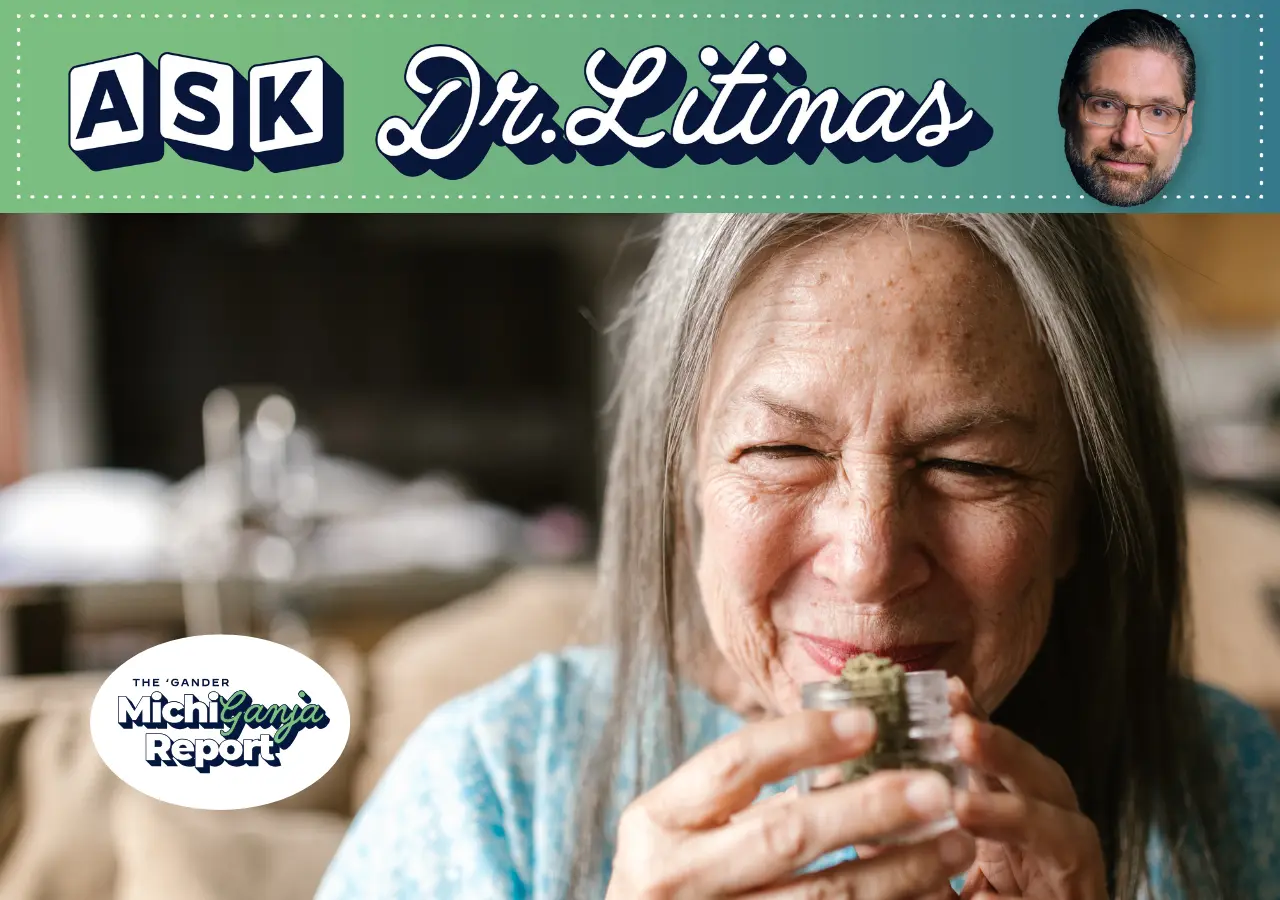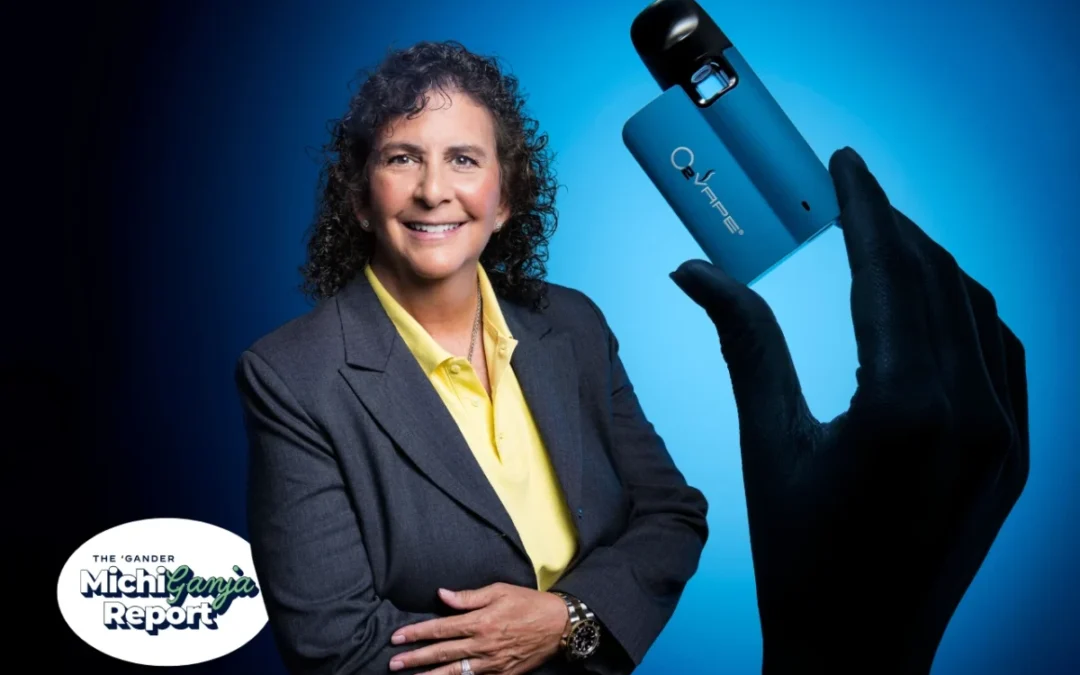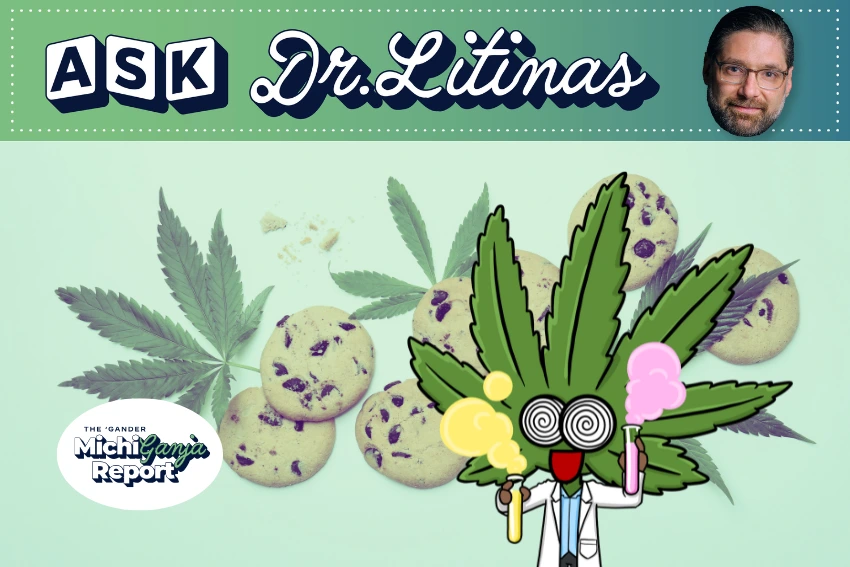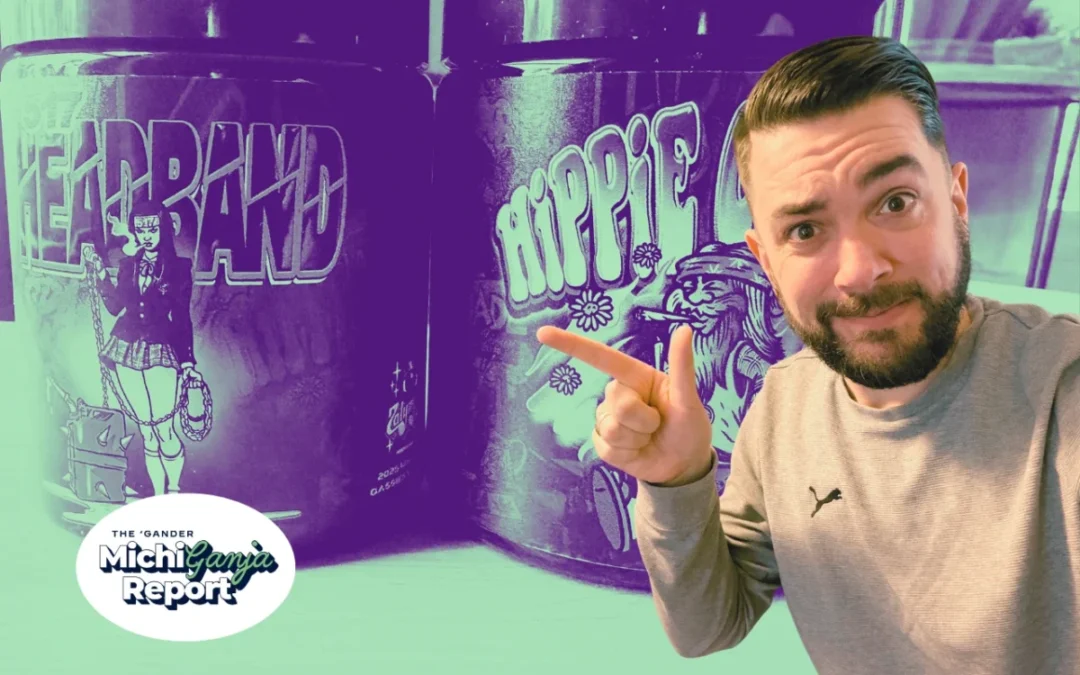
Ask Dr. Litinas is a column that publishes twice monthly as part of The MichiGanja Report—our free, weekly newsletter about all things marijuana. Click here to sign up.
MICHIGAN—A few weeks ago, I shared why it’s so important to let your doctor know about your cannabis use. Whether it’s for relief, relaxation, or part of a broader wellness plan, cannabis can influence your health and interact with other treatments. And your healthcare provider can only give you the best medical advice when they have a full picture of what’s going on in your body.
It’s also worth remembering that cannabis is still classified as a Schedule I substance under US federal law—a category reserved for drugs officially considered to have “no accepted medical use” and a high potential for abuse. This outdated classification creates real challenges for physicians and healthcare providers. It can also make some of them hesitant to discuss cannabis in depth, even when they’re able to see the potential benefits for their patients.
By coming to the table with accurate, thoughtful information, you can help shift the conversation from legal uncertainty to personal wellness—allowing your provider to engage with you from a place of understanding.
The power of your own data
When it comes to cannabis, you are the expert on your experience—but your healthcare provider is the expert on your overall health. The best care happens when both of you bring your knowledge to the table.
So, what information can you potentially bring to your next healthcare visit that can be helpful?
Below is not a comprehensive list, but it’s a strong starting point. You might even ask your provider what additional information would be most useful for them. Any data you collect can make your conversation more productive—and hopefully improve your results.
Track and share:
- Why are you using cannabis? What wellness goal are you aiming for?
- How are you consuming it? Smoking, vaping, edibles, tinctures, topicals, etc.
- When are you taking it? Morning, night, before activities, after meals?
- How often? How many times in 24 hours? In a week?
- What’s your dose? Milligrams of THC/CBD, inhalations, or other measurable units.
- Do you know your cannabinoid ratio? (THC:CBD balance, e.g., 1:1 or 5:1.)
- What effects have you noticed—positive or negative?
- How are your symptoms after use? Have they improved? Stayed the same?
- Any side effects? Such as fatigue, dizziness, anxiety, or changes in mood.
Even a few of these details can give your physician insight that might otherwise be difficult to uncover.
A partnership in care
In my opinion, keeping a simple cannabis journal—and reviewing it with your healthcare provider—can transform cannabis from a trial-and-error experiment into a methodical, personalized wellness tool. You and your physician can use this information together to make informed adjustments and track progress over time.
Take advantage of the relationship you have with your healthcare provider. And just as importantly, take advantage of the relationship you’re building with this powerful medicinal plant. That conversation—expressed through the language of human biochemistry—has the potential to be one of the most important dialogues in your healthcare journey.
This content is for education, not medical advice. Talk to your doctor before making any health decisions—especially when it comes to cannabis. Products are only for adults ages 21 and up.
READ MORE: A little cannabis might be all you need for big results
Got a question about weed for Dr. Litinas? Send it in here. We’ll get you a response.

Want more cannabis news delivered right to your inbox? Click here to sign up for The MichiGanja Report—our free, weekly newsletter about all things marijuana.

Meet the small-town Michigan company behind your favorite glass-tipped vape pens
If you’ve ripped live rosin out of a glass-tipped vape lately, there’s a decent chance a small Michigan team helped make that experience...

7 quick hits of cannabis news from across Michigan
MICHIGAN—Spark up and catch up. Here’s a quick rundown of what’s new on Michigan’s cannabis scene: TAX WATCH: Most dispensaries are still waiting to...

Why cannabis-infused edibles don’t affect Michiganders the same way every time
Ask Dr. Litinas is a column that publishes twice monthly as part of The MichiGanja Report—our free, weekly newsletter about all things marijuana....

7 quick hits of cannabis news from across Michigan
MICHIGAN—New year, same weed drama. Between panic buying ahead of a new statewide wholesale tax, layoffs hitting the Upper Peninsula, and a court...

Lansing cannabis operation grows top-shelf weed that justifies the splurge
Premier Cannabis Farms is leaning on old-school genetics and hands-on cultivation to deliver premium cannabis that stands apart in an increasingly...





